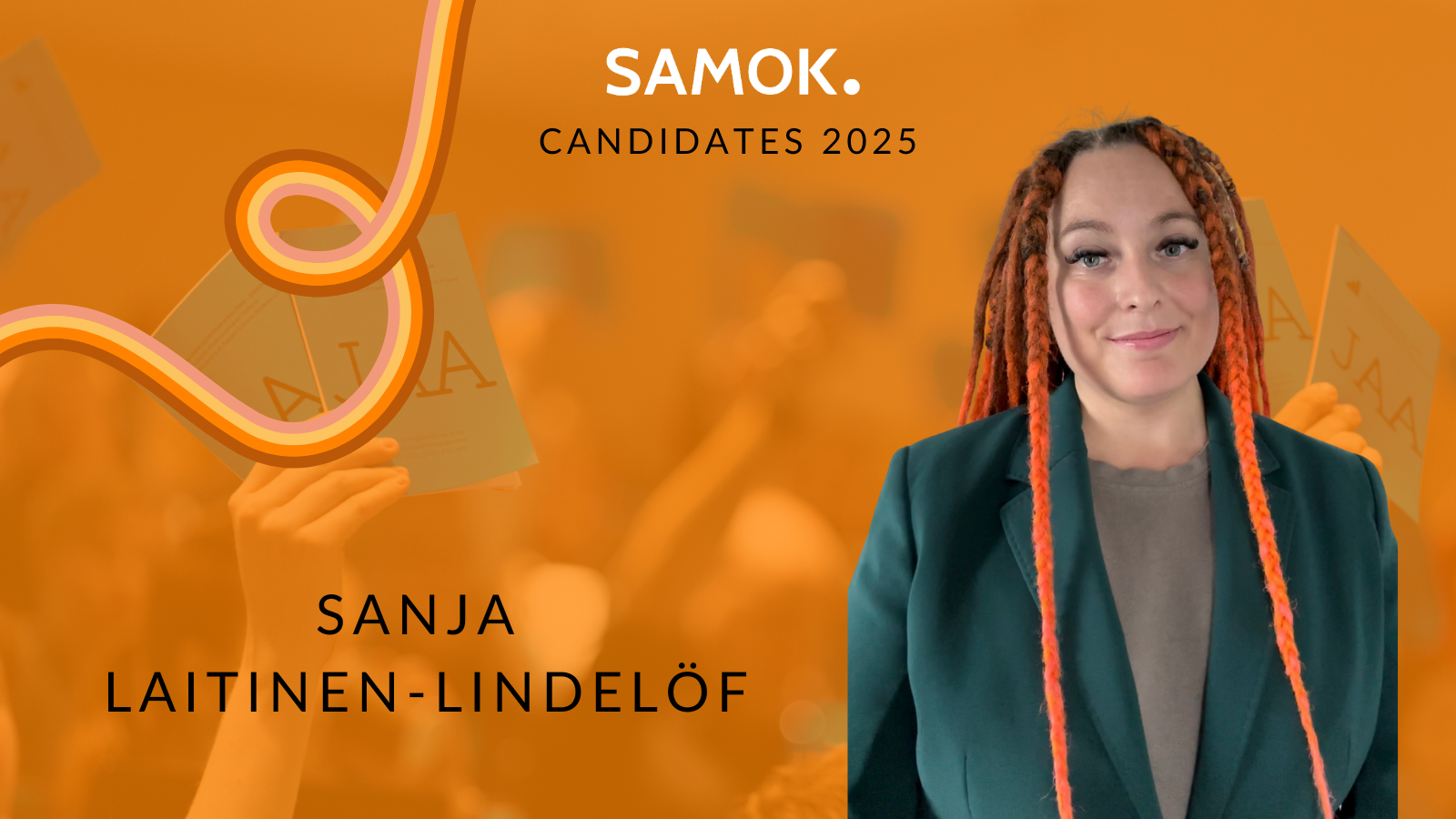It’s that time of year again when student unions focus on ensuring continuity. While the focus is partially on the upcoming year already, we are still living in the present moment and reflecting on the past, as discussions about the upcoming representatives and board positions often raise the same familiar question: is there time for one’s own studies?
The advocacy work carried out alongside studies, daily life, and work, is not merely a temporary resource challenge affecting students. Within those same 24 hours lies the necessary energy for managing life after graduation, work and family life, hobbies and leisure time, active citizenship, and the opportunity to continue challenging oneself, growing, and developing as a person. To ensure such opportunities, we need sufficient and preventive welfare services to support the well-being of our students.
The Youth Barometer (2021-2022) and the Health and Well-Being Study of Higher Education Students (KOTT, 2024) reveal concerns about burnout, future anxiety, and worries that one’s resources are insufficient for the job market. A significant part of an individual’s well-being and resilience is strongly connected to the availability of networks, communities, and basic services. Yet again this year, the Finnish Student Health Service continues to struggle with inadequate base funding, even as the number of students increases, and nearly 70% of services are handled digitally (FSHS, 2024). We need more accessible health services, increased visibility for regional challenges, and genuinely supportive student financial aid reforms that can at least let the hope of understanding serve as a protective factor for one’s mental well-being.
Even when examining student well-being solely from a housing perspective, it can be noted that an increasing number are at risk of becoming homeless for financial reasons — even though financial challenges have not previously been a primary cause of homelessness in Finland. By directing resources away from organizations, associations, youth and addiction work, and the quality development of social work and professional qualifications, we are not only creating a new threat of homelessness in Finland. We are also deepening an existing divide that enhances the spread of conflict and social inequality.
Looking back to the mid-19th century in Finland, youth and sports clubs, temperance societies, and volunteer fire departments began their activities. Cultural events, library activities, professional and labor unions, and the Finnish Women’s Association have all been organized by volunteers. The student movement is just one part of this socially significant and welfare-protecting activity, which is rarely appreciated enough. Various volunteer activities have included organizing different community events, guiding clubs, conducting training, providing diaconal work, and taking care of both oneself and others.
Research indicates that volunteer work also increases the well-being of those involved. The ability to influence matters that are important to oneself and belonging to a peer community are the cornerstones of this well-being. Nearly one-third of higher education students do not feel this sense of belonging. About half of secondary education students feel excluded from their communities. This cannot be remedied merely by transitioning from studies to the workforce, nor by opposing each other. It requires respectful encounters and a public discussion culture in which students’ rights to adequate livelihoods are not seen as unreasonable. By cutting support from students, we are also cutting from their self-worth, sense of belonging, and experiences of dignity. We are cutting from the respect that our education system needs to remain current, high-quality, and supportive of Finland’s economic sustainability.
The foundation of a civilized society’s well-being is not forced, guilt-ridden self-sacrifice for the welfare of the few and chosen, but rather a genuine desire to build together towards a better future. This desire is also demonstrated daily by students and the student movement. Each completed internship, written statement, retake exam, and encouraging word to oneself or a fellow student exemplifies the willingness to do one’s part. When discussing students’ livelihoods, we must also talk about their right to leisure time — an inherent need to rest, recover, feel pride in one’s work, and dream.
We all know that we are willing to work for things that matter to us, sometimes even at the cost of our own well-being. Finland has a long history of valuing hard work, producing quality education, and providing good healthcare — with an attitude that can push through stone if needed to. Is it not time to put aside the stones and direct that much discussed attitude towards the good of the entire community?
Author: Sanja Laitinen-Lindelöf, candidate for SAMOK Vice President for 2025.
During the autumn, SAMOK will present candidates for the SAMOK board for 2025 on its blog and on social media. For more information about the Gederal Assembly, click here.

